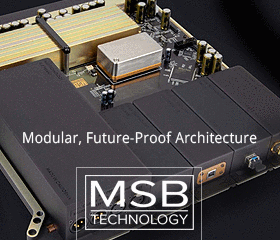Thanks for the replies. What I am ultimately trying to determine is why some people hear a difference between Ethernet cables. On one hand it is easy to see how an Ethernet cable can attenuate a waveform representing the data so that the receiver circuitry creates timing errors in reconstructing the bits. In this case, it is easy to grasp how an Ethernet cable can affect digital audio.
The problem is some people claim jitter is removed at every step along the way, whether the data is written to a hard drive, or buffered before being played. However, this site implies that buffers can add jitter, not remove it.
“The digital audio data must make its way through the system over wires/traces and sometimes through buffers, such as the buffer to drive the S/PDIF cable. Each of these buffers has finite reaction times and imprecise detection of changing signal levels. What this means is that even though the signal may not have much jitter coming into the buffer, it may exit with additional jitter.”
http://www.positive-feedback.com/Issue43/jitter.htm
I doubt if the people reporting a difference in audio quality between Ethernet cables are hallucinating that experience. So, I am trying to get at least a hypothetical reason as to how there could possibly be a difference.
At this point, this issue does not affect me since I use a Bryston BDP-1 file player with a direct attached USB drive, although I guess the little 6” cable that comes with the drive could also have issues. If I do eventually migrate to a NAS system I want to make sure I have the issues relating to the Ethernet cables well understood.
The problem is some people claim jitter is removed at every step along the way, whether the data is written to a hard drive, or buffered before being played. However, this site implies that buffers can add jitter, not remove it.
“The digital audio data must make its way through the system over wires/traces and sometimes through buffers, such as the buffer to drive the S/PDIF cable. Each of these buffers has finite reaction times and imprecise detection of changing signal levels. What this means is that even though the signal may not have much jitter coming into the buffer, it may exit with additional jitter.”
http://www.positive-feedback.com/Issue43/jitter.htm
I doubt if the people reporting a difference in audio quality between Ethernet cables are hallucinating that experience. So, I am trying to get at least a hypothetical reason as to how there could possibly be a difference.
At this point, this issue does not affect me since I use a Bryston BDP-1 file player with a direct attached USB drive, although I guess the little 6” cable that comes with the drive could also have issues. If I do eventually migrate to a NAS system I want to make sure I have the issues relating to the Ethernet cables well understood.














